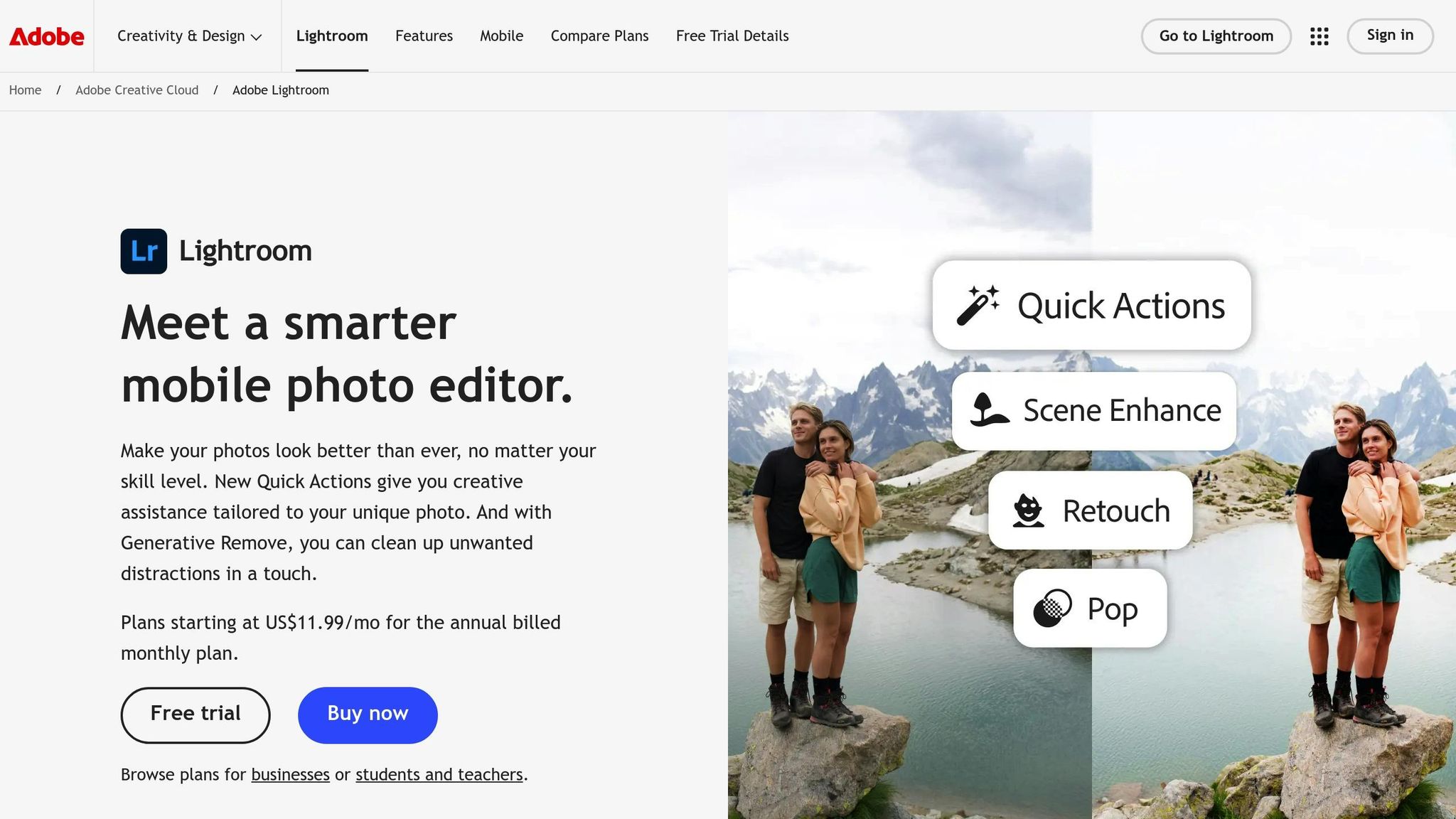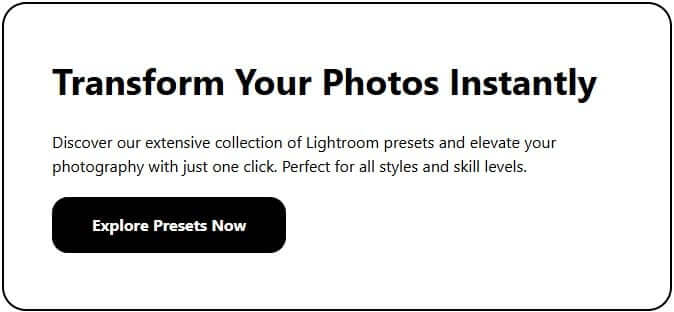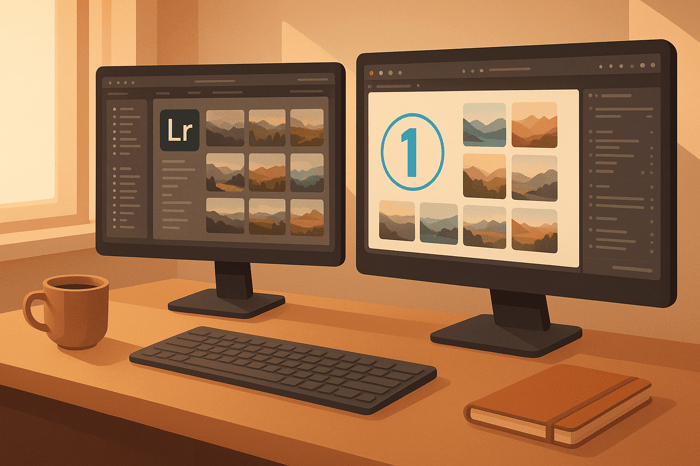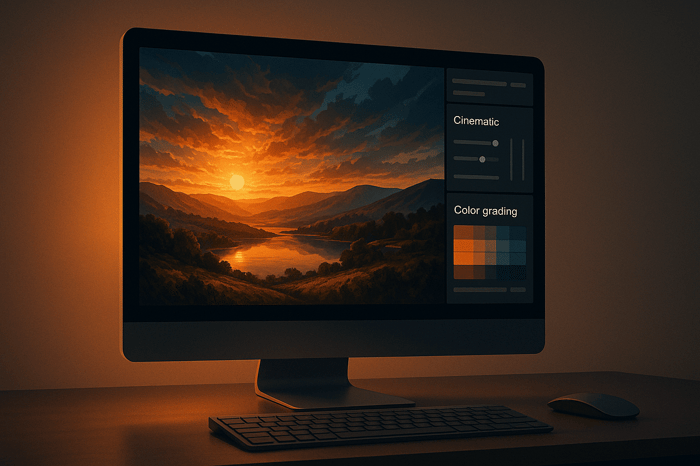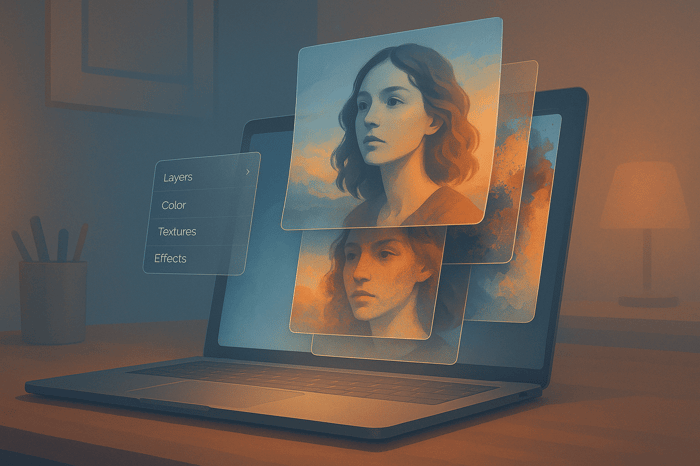Table of Contents
Lightroom Preset Licensing: What to Know
Lightroom presets save time and simplify photo editing, but understanding licensing is key to using them properly. When you purchase a preset, you're buying a license to use it under specific rules - not ownership of the preset itself. Misusing presets, like sharing or reselling them, can lead to legal issues. Here's what you need to know:
- Personal Use Licenses: For non-commercial projects like personal blogs or social media. Cannot be used for profit or business purposes.
- Commercial Use Licenses: For professional work, including client projects, ads, and business content. Still, redistribution or resale of presets is prohibited.
- Key Restrictions: No sharing, modifying for resale, or embedding presets into other products. Creators retain copyright, even if you alter the preset.
Bottom Line: Always review the license terms before purchasing presets. If unsure, ask the creator to avoid potential legal trouble.
How To COPYRIGHT Your Lightroom Presets
Types of Preset Licenses
Preset licenses are divided into categories designed to meet different personal and professional needs.
Personal Use Licenses
Personal use licenses are strictly for non-commercial projects where no revenue is involved. These licenses let you edit your own photos for personal blogs, social media accounts, or academic purposes. However, there’s a clear restriction: they cannot be used for activities that generate income or promote a business. For instance, you can enhance vacation photos or update your personal social media, but you can't use these presets for client work or to advertise products or services. Often referred to as non-commercial licenses, this type of license also limits usage to a single personal, non-commercial social media account. Selling edited photos or using them for promotional purposes is strictly prohibited.
Commercial Use Licenses
Commercial use licenses are tailored for professional settings where revenue is involved. They allow you to use presets for a variety of applications, including client work, business-related social media accounts, and paid advertisements. Whether you're editing photos for a marketing campaign or creating content for multiple business accounts, a commercial license has you covered. These licenses typically permit unlimited use across business platforms and advertisements, both digital and physical. Importantly, they also allow you to reproduce edited images on products for sale. However, even with a commercial license, you cannot redistribute, share, or resell the presets themselves - even if you’ve modified them. The license grants usage rights, not ownership of the preset files.
License Terms and Restrictions
Both personal and commercial licenses come with strict terms to ensure proper use. One of the most critical restrictions is non-transferability: you cannot share, resell, or redistribute the preset files under any circumstances. Additionally, many licenses include device limitations, specifying how many devices can install and use the presets. While some creators permit installation on multiple devices for a single user, others may set stricter limits.
Modifying a preset doesn’t grant ownership of its copyright. Selling or distributing a modified version without permission could still violate copyright laws.
Here’s a quick comparison of the two license types:
| Feature | Personal Use License | Commercial Use License |
|---|---|---|
| Client Projects | Not Allowed | Allowed |
| Social Platforms | One personal account (non-commercial) | Unlimited business accounts |
| Advertisements | Not Allowed | Unlimited physical and digital ads |
| Financial Gain | Not Allowed | Allowed |
| Preset Redistribution | Not Allowed | Not Allowed |
Other prohibited uses include incorporating presets into competing products or misrepresenting copyright ownership. Additionally, most licenses forbid using presets in ways that could be considered defamatory, obscene, illegal, or otherwise inappropriate.
When deciding which license suits your needs, think about how you plan to use the presets. If you’re unsure about specific terms, contacting the creator or seeking legal advice can help you avoid any issues.
Legal Aspects of Preset Licensing
Grasping the legal side of preset licensing is essential for both creators and users to steer clear of disputes and copyright issues.
Copyright Protection for Preset Creators
Lightroom presets can qualify for copyright protection under U.S. law if they show originality and a touch of creativity. The unique configurations and settings in a preset are treated as digital works, granting them the same legal protections as other creative outputs. This means preset creators hold exclusive rights to reproduce, distribute, and publicly display their work.
To solidify their rights, creators often document their process, register their presets, and use digital watermarks. Publishing clear usage policies and embedding copyright details into photo metadata also helps protect their work and clarify what’s allowed. These steps reinforce the principle that ownership stays with the creator, even when someone purchases the preset.
Ownership vs. Licensing
A common misunderstanding is that buying a preset means owning it outright. In reality, you’re purchasing a license to use the preset under specific terms, not the preset itself. The license agreement spells out what you can do, such as editing personal photos, using the preset commercially, or installing it on multiple devices. However, the creator retains full ownership of the preset, including the rights to modify, distribute, or even discontinue it.
This licensing model strictly prohibits actions like sharing, reselling, or embedding the presets into competing products. Professional photographers often create these presets, investing considerable time and expertise to craft their unique adjustments. It’s crucial to understand these boundaries because violating the terms can lead to serious legal consequences.
What Happens When You Violate License Terms
Breaking preset license terms can lead to more than just contractual disputes - it can escalate to copyright infringement, which carries heavier penalties. For instance, creators can seek either actual damages or the profits made by the infringer. Statutory damages for copyright infringement can go up to $150,000 per work violated, and willful infringement might also include attorney fees and maximum penalties.
The difference between breaching a contract and infringing copyright is significant. While contract breaches usually result in monetary damages, copyright infringement can lead to statutory damages and additional legal costs.
To stay on the safe side, always review the license terms before purchasing presets and keep organized records of your licenses for all devices. If you’re unsure about how you can use a preset, it’s better to ask the creator directly than to risk a violation.
The Master Preset Bundle
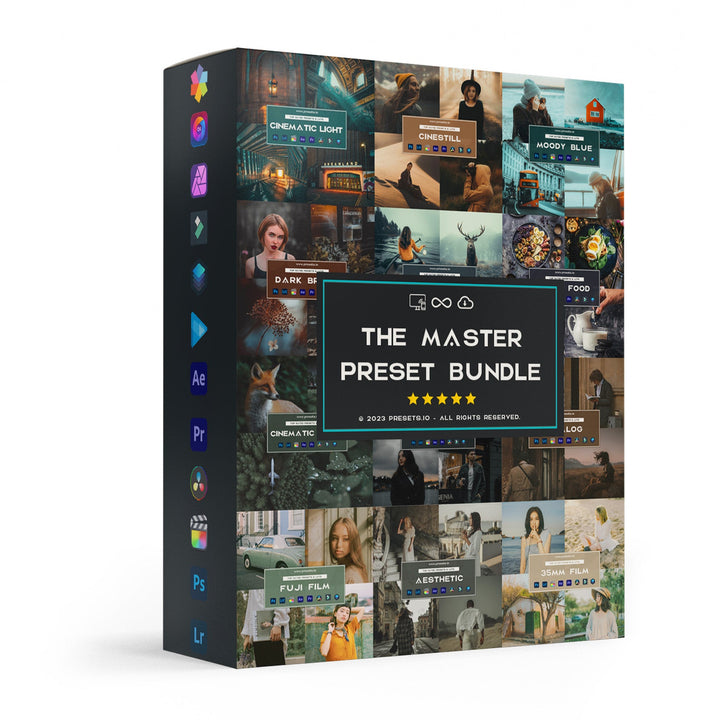
$49.00
$672.00
Get All High-Quality Preset Collections For Just $49. Best Value! Every Style. Every Platform. One Download Get 56 high-quality Presets.io collections in one complete bundle — designed to help you edit faster, stay consistent, and get professional-looking results in seconds.… continue reading
What You Can and Cannot Do with Presets
After covering the legal aspects and license restrictions earlier, let's dive into a straightforward guide on what you're allowed to do - and what you should avoid - when using presets. While the specifics depend on the license you’ve purchased, many licenses share similar terms.
Allowed Uses
If you hold a personal license, you can typically use presets to edit images for non-commercial purposes, like social media posts or personal projects. Some personal licenses even allow limited commercial use, but this is often subject to specific conditions. On the other hand, commercial licenses are designed for professionals, permitting the use of presets in client work or business-related photography. However, since the details can vary, it’s a good idea to carefully review the terms of your specific license.
Forbidden Uses
One of the most common restrictions is redistribution. Simply put, you cannot share or resell purchased Lightroom presets, as the copyright remains with the creator. Even if you modify a preset, the altered version doesn’t grant you ownership rights. Distributing or selling a modified version without explicit permission could still violate copyright laws.
Other prohibited actions include bundling presets with other products, courses, or giveaways unless you have explicit approval from the creator. Similarly, creating derivative preset packs or tutorials based on purchased presets is typically not allowed.
Allowed vs. Forbidden Uses Comparison
Here’s a quick comparison to help you navigate what’s permissible and what crosses the line:
| Allowed Activities | Forbidden Activities |
|---|---|
| Edit personal images for social media, family albums, and personal projects | Share or redistribute preset files in any format |
| Use presets for client work and certain commercial photography projects | Bundle presets with products, courses, or giveaways without permission |
| Create portfolio pieces featuring preset-enhanced images | Modify presets and distribute the modified versions |
| Apply presets in wedding, portrait, and event photography | Use presets on team projects without individual licenses |
| Use presets for business marketing materials and websites | Upload presets to file-sharing platforms for others |
| Edit images intended for print sales or exhibitions | Create derivative preset packs based on purchased presets |
| Embed presets into competing photography products or apps |
The bottom line is that some presets are available for both personal and commercial use, while others are limited to personal use only. Always read the licensing terms before using any preset. If you’re unsure about what’s allowed, the safest bet is to reach out to the preset creator for clarification.
How to Manage Preset Licenses Properly
Handling preset licenses correctly helps protect creators' rights and keeps your workflow running smoothly.
Review License Terms Before Buying
Before making a purchase, take the time to read the license agreement. This document spells out your rights as the licensee, explains acceptable use cases for the presets, and highlights what rights the creator retains. By purchasing, downloading, installing, or using the presets, you’re essentially agreeing to these terms.
Pay particular attention to any usage limitations. As mentioned earlier, license types vary. Some creators may require you to provide attribution when using their presets. If you’re a professional photographer planning to use presets for client projects, ensure the license explicitly allows commercial use.
Avoid modifying, redistributing, or sharing presets without the creator’s explicit permission.
If anything is unclear, don’t hesitate to contact the creator directly or consult a legal professional for guidance.
Once you’ve secured your presets, the next step is to manage your licenses effectively across your devices.
Track Licenses Across Multiple Devices
Managing presets on different devices depends on the version of Lightroom you’re using. For those using Lightroom (Cloud version), your Adobe ID syncs presets automatically, making it easy to access them across devices without extra effort.
However, Lightroom Classic users face a different scenario. The desktop version doesn’t support automatic syncing, so you’ll need to manually import presets on each device. You can transfer preset files via USB drives or cloud storage. Keep in mind that Adobe permits Lightroom Classic activation on up to two devices.
To stay organized, consider creating a simple spreadsheet to track your preset purchases, license types, and installations. If you’re collaborating with team members, ensure the preset file format (.xmp or .lrtemplate) matches the Lightroom version they’re using. Each user must have their own license, as sharing presets without proper licensing is prohibited.
By keeping a detailed record of your purchases and where they’re installed, you can ensure compliance with licensing terms.
Finding Licensed Presets on Presets.io
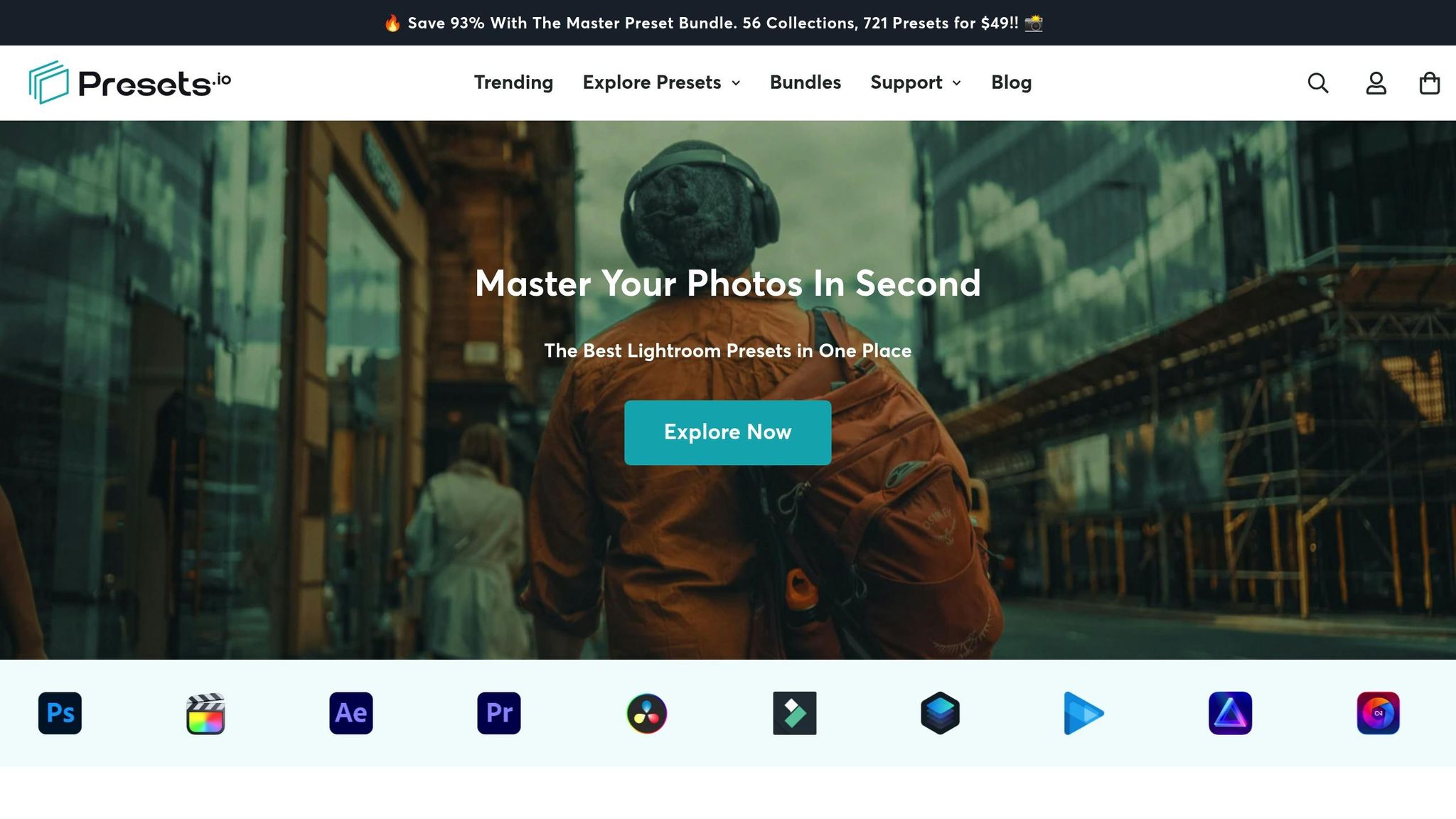
If you’re looking for high-quality presets with clear licensing terms, Presets.io is a great option.
Presets.io provides a wide range of presets alongside detailed installation guides. Their transparent licensing ensures you stay within legal boundaries while accessing premium presets.
The platform offers various collections, including cinematic, vintage, and aesthetic styles, compatible with editing tools like Adobe Premiere, Final Cut X, DaVinci Resolve, Photoshop, Luminar, and Filmora.
With its straightforward licensing and professional resources, Presets.io makes it easier to access excellent presets while staying compliant with usage guidelines.
Conclusion
Understanding preset licensing isn’t just about avoiding legal trouble - it’s about respecting the hard work of creators. Ignoring licensing agreements can lead to serious consequences, like cease-and-desist letters or even copyright infringement claims.
Before using any preset, take the time to read its terms. This small step can save you from costly mistakes, especially if you’re using presets for commercial projects where misuse could cross legal boundaries.
By sticking to proper licensing practices, photographers can handle creative assets responsibly and even enhance their profitability. Purchasing presets from trusted sources and honoring their usage terms helps sustain a creative ecosystem where artists can keep producing quality tools. This ethical approach aligns with the licensing principles outlined earlier.
Stay organized with your purchases and always follow the license terms - don’t share or redistribute presets without clear permission. If you’re ever uncertain about the terms, reach out to the creator or consult a legal expert.
When you respect preset licensing, everyone benefits. You gain access to professional-grade tools, and creators receive fair compensation for their efforts. Ethical and legal use of presets builds trust, encourages creativity, and strengthens collaboration in the digital world. This ensures the creative community continues to grow and deliver the resources that elevate your photography.
FAQs
What happens if I violate the licensing terms for Lightroom presets?
Violating the licensing terms for Lightroom presets can lead to serious repercussions. These can range from losing access to the presets to facing legal actions or hefty fines. For instance, copyright infringement penalties can climb as high as $150,000 per violation, while criminal charges might result in fines of up to $250,000 or even a prison sentence of up to five years.
Using, redistributing, or sharing presets without proper authorization could breach copyright laws. To steer clear of these consequences, make sure to thoroughly review the licensing terms and stick to the permitted usage guidelines.
What do I need to know about legally using Lightroom presets for professional work?
To use Lightroom presets professionally, make sure you have a valid license that clearly permits commercial use. Licensing terms can differ, so it's crucial to thoroughly read the agreement provided by the preset creator. Using presets without proper permission could lead to copyright violations.
For instance, some licenses might restrict use to personal projects, while others allow them for professional purposes, such as client work or marketing campaigns. Always review the usage terms carefully to stay within the law and ensure your work adheres to copyright rules.
Can I edit Lightroom presets for personal use, and are there any restrictions?
Yes, you can absolutely tweak Lightroom presets for your own personal projects. Adjusting presets allows you to align them with your specific editing preferences and style. That said, it's crucial to check the licensing terms tied to the presets you’ve bought or downloaded. Some presets come with rules about modifying, sharing, or redistributing them.
To stay on the right side of things, make sure any changes you make follow the original licensing agreement. If you’re unclear about the terms, revisit the source where you got the presets for more information.


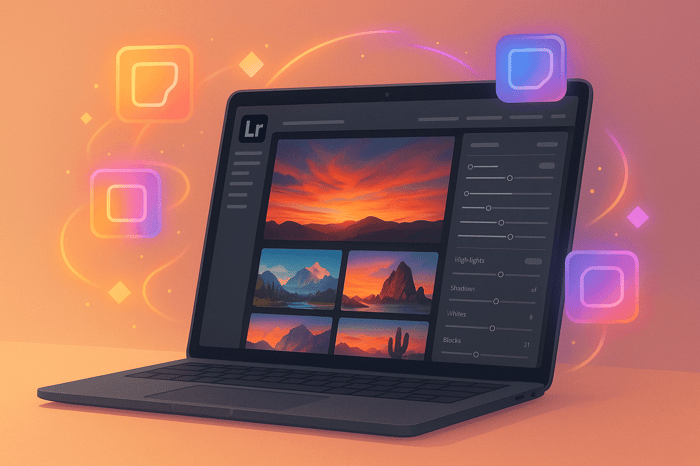
.png)
